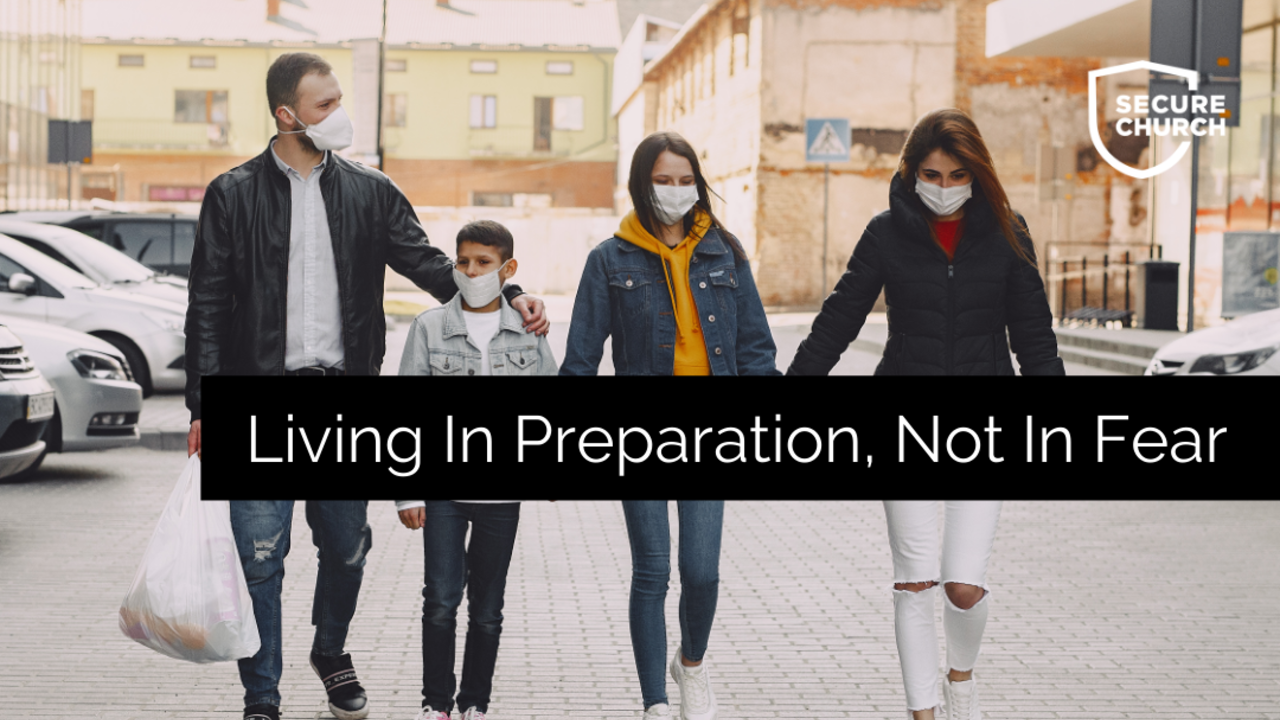Living in Preparation, Not In Fear

This article was first published in 2019. As we move towards reopening our malls, restaurants and schools, these lessons are worth a reminder.
Hardly a day goes by that we don’t learn of an active shooter incident. In fact, the FBI classified 27 deadly attacks in 2018 as active shooter incidents in places where people come to work, learn, relax or pray. News outlets estimate that a mass shooting has occurred on average every 12 days this year. It can be overwhelming and heartbreaking. It can make us all feel vulnerable. It might even drive us to live in fear.
We can’t predict the future, but we can prepare for it. Rather than living in fear, we believe in building the mental preparation and awareness to react to dangerous situations or even avoid them completely. Like most things in life, preparation is the key to stepping into public places and work spaces with confidence. This preparation will serve you well in a variety of crisis situations – and it could save your life.
Stay Alert. Stay Alive.
This mantra is instilled in Marines from the first days of their training. It seems simple, yet it’s a challenging task in our ever-connected world. We’ve all laughed at viral videos depicting people that step off a curb or run into a light post because their heads are buried in their phones; and yet, that’s probably how many of us go through life. Next time you are at your favorite coffee shop, try this: Put away your phone. Take out your earbuds. Stop, look and listen to the people and places around you. You’ll be surprised at what you can observe when you really become alert to your surroundings.
Survey the Room
Sometimes we do this without even thinking! Have you ever walked through a restaurant and peeked at what others are eating? When you go to party, do you notice what others are wearing? Even at business events, we scan the room to identify potential business contacts. This same skill can make a difference in a crisis situation. When you step into a mall, sporting event or even a crowded street, pause to observe the people around you and take note of their activities and appearance. Often, anything that’s out of the ordinary will get your attention and potentially alert you to danger.
Know Your Exits
Experienced police officers will do this intuitively. You can pick up the habit by asking yourself the question whenever you step into a shopping center, restaurant or office. Most public places have multiple entrances, side doors, and service corridors. Fire exits are usually well marked and easy to spot. Even if you can’t see it, many restaurants have a back door where deliveries come in and garbage goes out. Knowing the locations of exits can help you identify the fastest way to escape a dangerous situation.
Prepare Yourself and Your Plan
Expect the unexpected. None of us know where and when a crisis situation will occur, but there are some common elements in many crisis situations, and we can prepare for those. Whether it’s a natural disaster or act of terror, we know that it can be loud, confusing and upsetting. Understand that panic is the natural response for most people – and that you’ll have to rise above it. Know ahead of time how you will grab your child’s wrist and lead them to safety. Decide early in the evening what you will do when the nightclub becomes panicked. Before the movie starts, visualize pushing your companion through the exit door - that you located when you entered the theater!
First Responders
When tragedy strikes, the first responders will likely show up in overwhelming numbers. In an active shooter situation, they will run past injured people to eliminate the threat. When they do turn their attention towards you, it will be very direct – think of a drill sergeant shouting commands at new recruits. It will probably be some combination of “stay down, move quickly, keep your hands in the air”, and then remain in a safe holding area until they can treat or interview you. When they are ready to hear the story and collect evidence, they will let you know. Until then, just keep following directions.
Making the Difference
Whether you are traveling around the world or in your own community, crisis comes without warning. However, preparing your mind and body for a crisis must be built into your daily routines. Mental preparation and awareness of your surroundings can make the difference between living in fear and stepping out in confidence.
